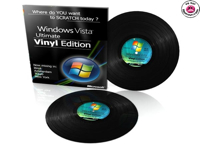Education spending patterns have been abnormal for several years. Publishing used to follow very predictable patterns – no more.
Between the Great Recession and ARRA Stimulus funds we have been living in an era of seesaw budgets for three years. Since education spending lags the general economy by up to 3 years this will continue until at least 2014.
I can remember entire decades where budget flows were so steady that you could predict the entire year within +/- 10% after the first three months. In 2008, 2009, and 2010 the first half of each year told you very little about the second half.
 The Education Business Blog
The Education Business Blog


 Today’s walkabout focuses on a fundamental shift in the instructional materials industry away from the scale economics of the big textbook publishers to the value of niche focused expertise. I believe this is the future of our business.
Today’s walkabout focuses on a fundamental shift in the instructional materials industry away from the scale economics of the big textbook publishers to the value of niche focused expertise. I believe this is the future of our business. Over the past couple of decades education publishing has been characterized by waves of consolidation into a handful of giant conglomerates. This is a typical pattern in an industry as products commoditize.
Over the past couple of decades education publishing has been characterized by waves of consolidation into a handful of giant conglomerates. This is a typical pattern in an industry as products commoditize. An understatement – education publishing is changing.
An understatement – education publishing is changing. 50% of the men did not wear neck ties at this year’s
50% of the men did not wear neck ties at this year’s  When textbooks go fully digital what will schools buy? Will they buy individual lessons, units of 2-3 weeks length, or full curriculum that span a year the way they do today? This is the $5 billion question facing our industry.
When textbooks go fully digital what will schools buy? Will they buy individual lessons, units of 2-3 weeks length, or full curriculum that span a year the way they do today? This is the $5 billion question facing our industry. In discussing the potential for ads in e-books – the latest hail mary pass of traditional media –
In discussing the potential for ads in e-books – the latest hail mary pass of traditional media – 